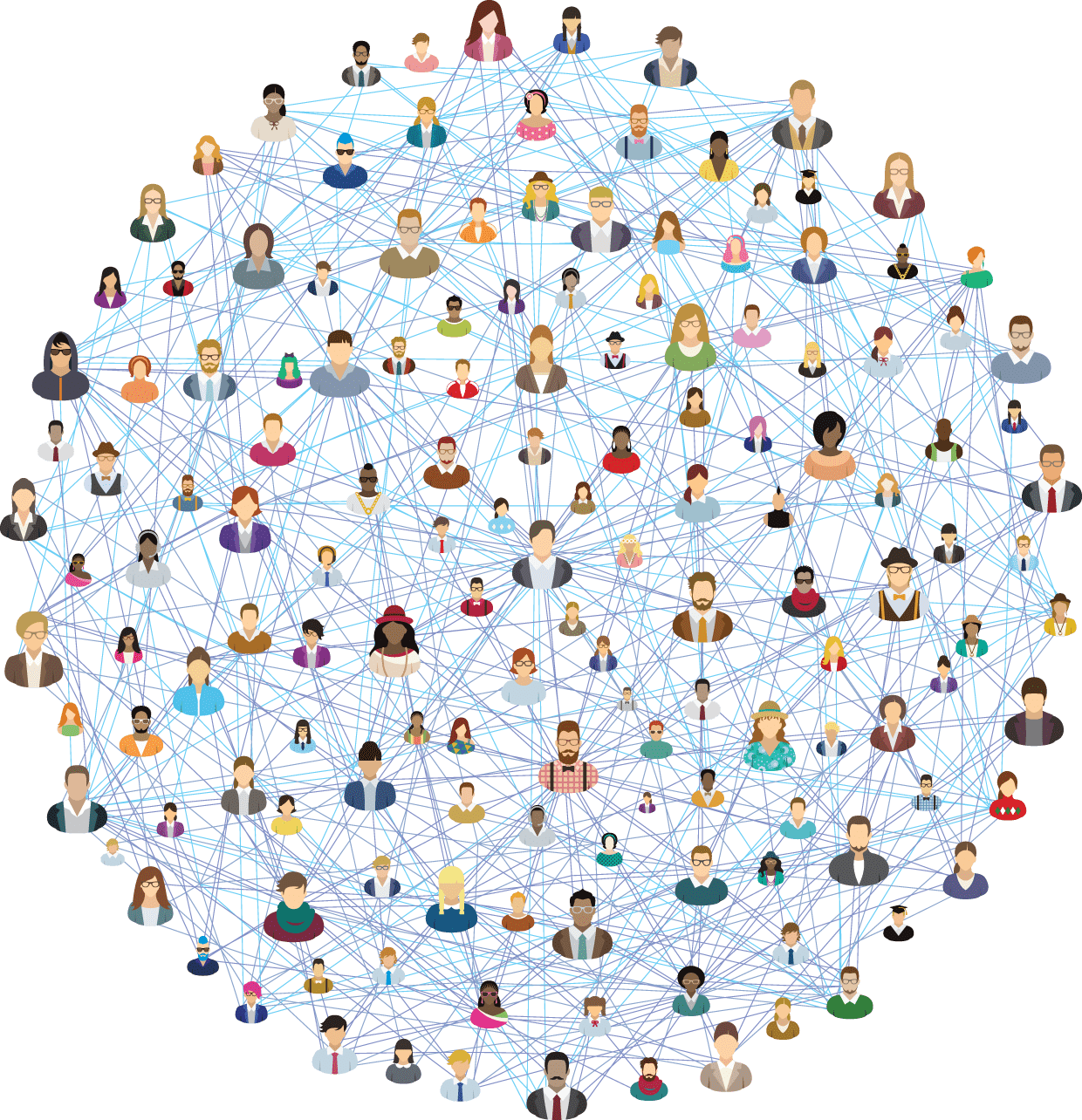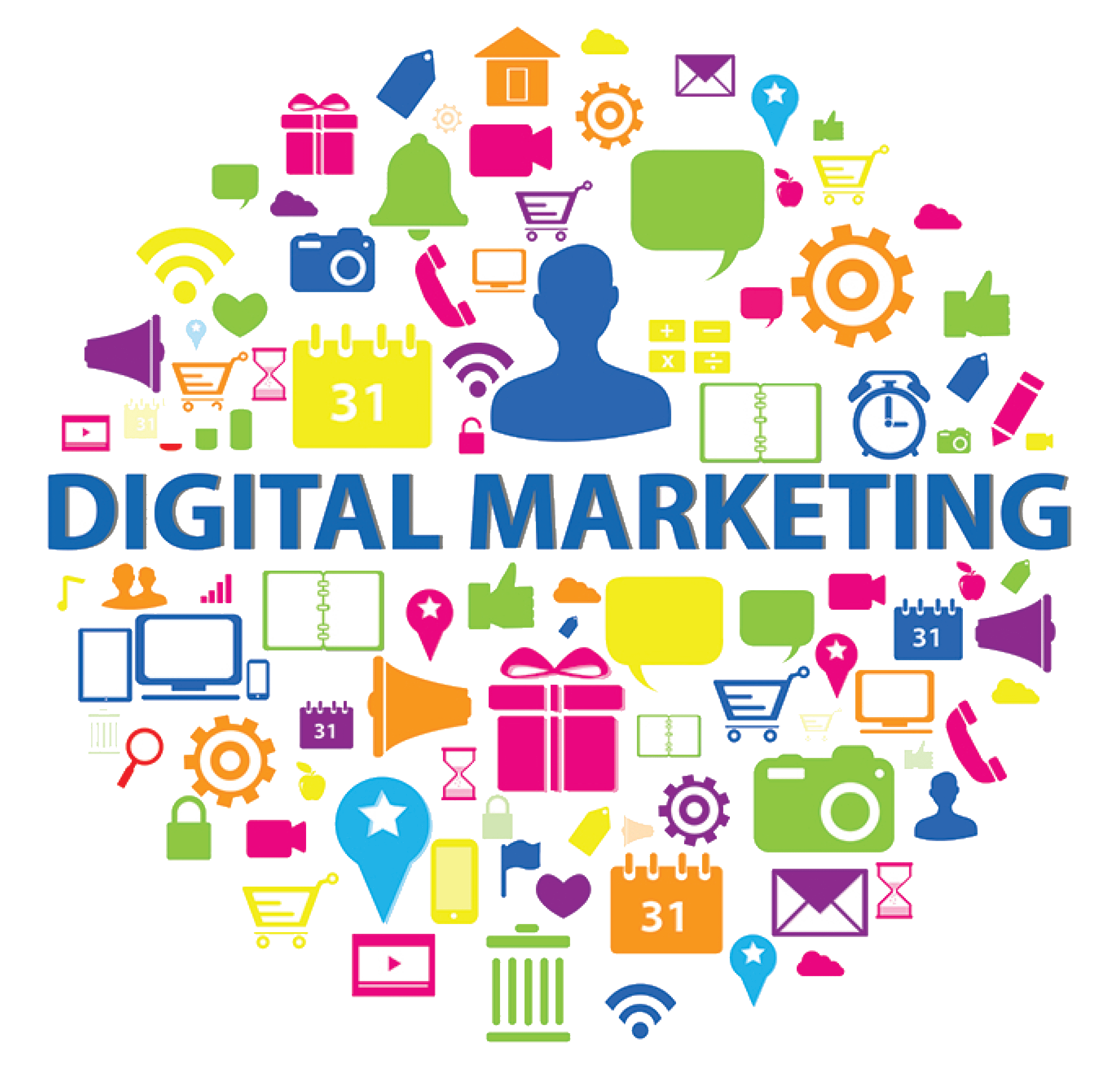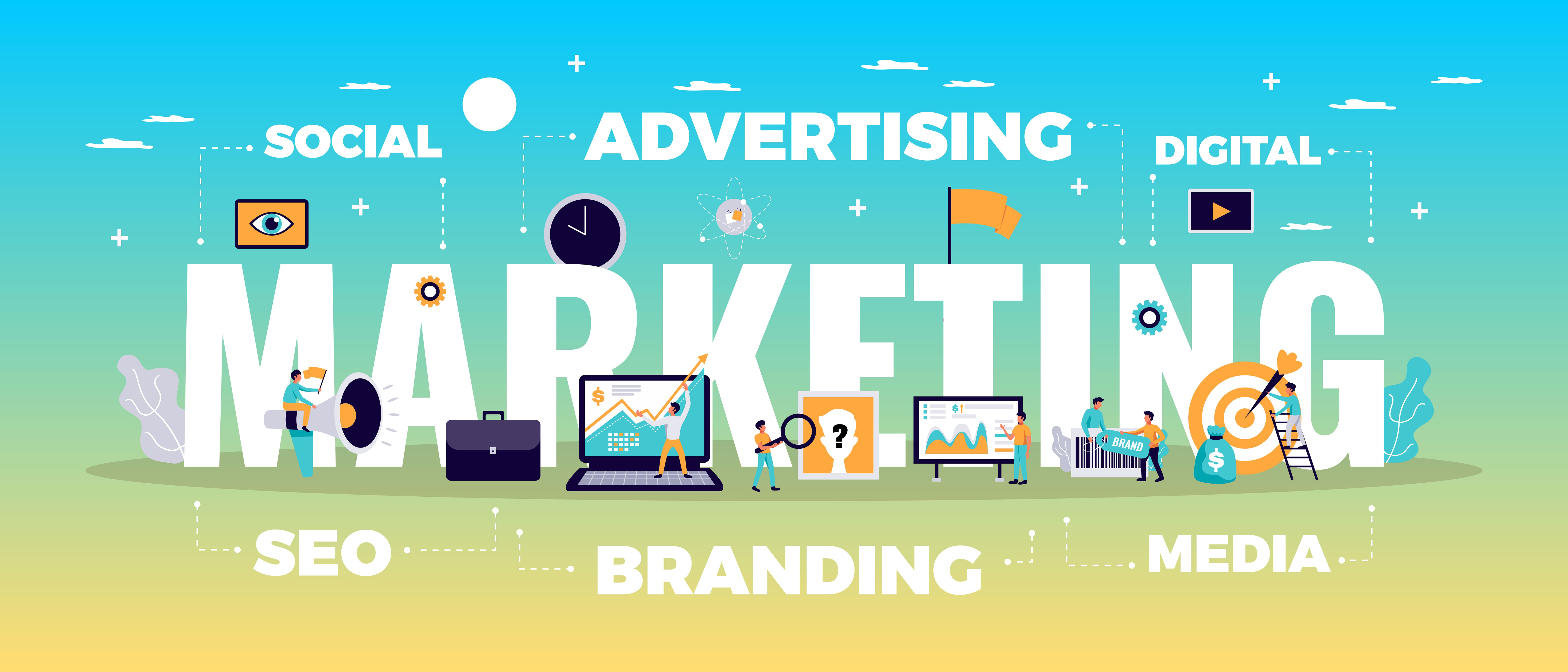Digital-Marketing
Digital marketing refers to the use of digital channels and technologies to promote products, services, brands, or businesses. It encompasses various online marketing strategies and tactics aimed at reaching and engaging a target audience, driving website traffic, generating leads, increasing conversions, and ultimately achieving business goals. In this response, I will provide a comprehensive overview of digital marketing, covering key concepts, strategies, channels, tools, and best practices. Digital marketing has become increasingly important in today's digital age, where consumers spend a significant amount of time online. It offers businesses and marketers the opportunity to reach a wide audience, target specific demographics, measure campaign effectiveness, and optimize marketing efforts based on data-driven insights. Digital marketing encompasses a range of activities, including search engine optimization (SEO), search engine marketing (SEM), content marketing, social media marketing, email marketing, and more.

To understand digital marketing better, it's essential to familiarize yourself with key concepts and terminologies:
- Conversion Funnel: A conversion funnel represents the stages a user goes through, from the initial awareness of a brand or product to the ultimate conversion, such as a purchase or lead generation.
- Key Performance Indicators (KPIs): KPIs are measurable metrics used to evaluate the performance and effectiveness of digital marketing campaigns.
- Search Engine Optimization (SEO): SEO refers to the practice of optimizing a website's visibility in search engine results pages (SERPs) organically.
- Search Engine Marketing (SEM): SEM involves paid advertising on search engines, commonly through platforms like Google Ads.
- Pay-Per-Click (PPC): PPC is an advertising model where advertisers pay a fee each time their ad is clicked. It's commonly associated with search engine advertising, but it also applies to other forms of online advertising, such as display ads and social media ads.
- Content Marketing: Content marketing focuses on creating and distributing valuable and relevant content to attract and engage a target audience. It includes blog posts, articles, videos, infographics, and other formats that provide value to users and establish brand authority.
- Social Media Marketing: Social media marketing involves leveraging social media platforms like Facebook, Instagram, Twitter, LinkedIn, and others to promote products, engage with the audience, and build brand awareness.
- Email Marketing: Email marketing involves using email as a communication channel to deliver targeted messages, promotional offers, newsletters, and updates to subscribers.

Digital marketing employs a variety of strategies and tactics to achieve marketing objectives. Here are some popular strategies:
- Search Engine Optimization (SEO): SEO aims to improve organic visibility in search engines by optimizing website content, structure, and technical aspects.
- Search Engine Marketing (SEM): SEM includes paid search advertising, such as Google Ads, where advertisers bid on keywords to display their ads in search engine results.
- Content Marketing: Content marketing focuses on creating valuable, informative, and engaging content to attract and retain an audience.
- Social Media Marketing: Social media marketing leverages social media platforms to reach and engage with a target audience.
- Email Marketing: Email marketing involves sending targeted emails to subscribers to nurture leads, promote products, and build customer relationships.
- Influencer Marketing: Influencer marketing involves partnering with influential individuals on social media to promote products or services.
- Affiliate Marketing: Affiliate marketing is a performance-based marketing strategy where affiliates promote products or services in exchange for a commission on successful referrals or sales. It can help reach a wider audience and drive conversions.

Digital Marketing Channels and Tools:
Digital marketing utilizes various channels and tools to reach and engage the target audience effectively. Here are some key channels and tools:
- Search Engines: Search engines like Google, Bing, and Yahoo serve as a primary channel for SEO and SEM efforts.
- Social Media Platforms: Popular social media platforms like Facebook, Instagram, Twitter, LinkedIn, and YouTube enable businesses to engage with a wide audience through organic posts, paid advertising, and influencer collaborations.
- Content Management Systems (CMS): CMS platforms like WordPress, Joomla, and Drupal provide tools for creating, managing, and publishing website content, enabling content marketing efforts.
- Customer Relationship Management (CRM) Systems: CRM systems like Salesforce, HubSpot, and Zoho help manage customer data, track interactions, and automate marketing workflows, enabling personalized and targeted marketing campaigns.
- Email Marketing Platforms: Email marketing platforms like Mailchimp, Sendinblue, and Constant Contact provide tools for designing, sending, and tracking email campaigns, managing subscriber lists, and automating workflows.

